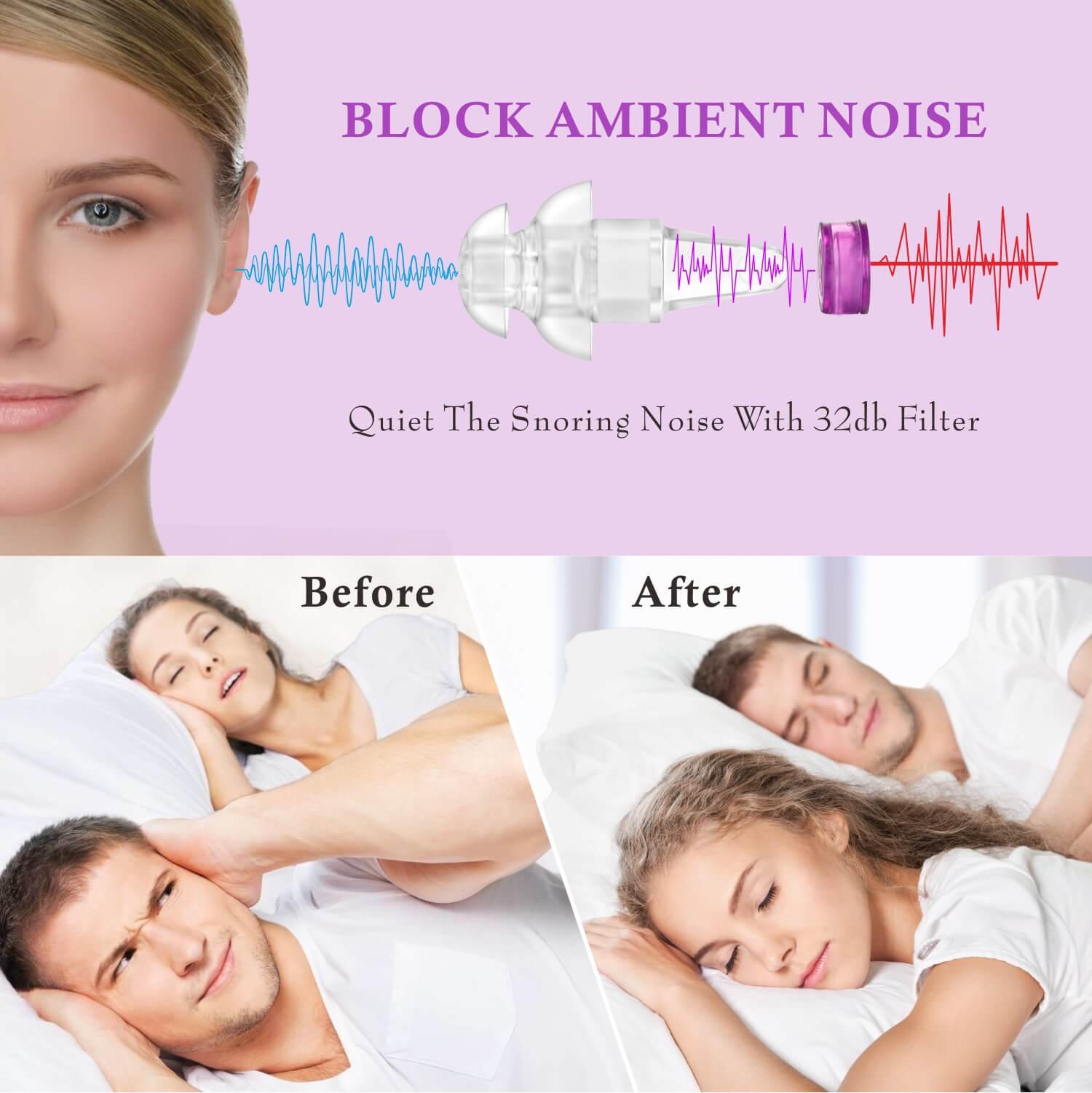Do Sleeping Ear Plugs Really Help Reduce Snoring Disruptions?
Cuerpo
Snoring can be a disruptive and frustrating issue, both for the snorer and their sleeping partner. It can lead to sleep disturbances, daytime fatigue, and even relationship problems. Many people turn to sleeping ear plugs as a potential solution to reduce snoring disruptions. But do these ear plugs really help? Let's explore the effectiveness of sleeping ear plugs in reducing snoring disruptions.

The Science Behind Snoring
Before we delve into the effectiveness of sleeping ear plugs, it's important to understand the science behind snoring. Snoring occurs when the flow of air through the mouth and nose is partially blocked during sleep. This blockage causes the surrounding tissues to vibrate, resulting in the characteristic snoring sound.
How Sleeping Ear Plugs Work
Sleeping ear plugs are designed to block out external noise and create a quieter sleeping environment. They are typically made of soft, comfortable materials that fit snugly into the ear canal. By reducing the amount of noise reaching the ears, sleeping ear plugs can potentially minimize the disturbance caused by snoring.
Effectiveness of Sleeping Ear Plugs
While sleeping ear plugs can be effective in reducing general noise disruptions, their effectiveness in reducing snoring disruptions may vary from person to person. Some individuals find that sleeping ear plugs significantly reduce the impact of snoring on their sleep, allowing them to sleep more soundly throughout the night. Others may find that the ear plugs only provide partial relief or no relief at all.
One factor that can influence the effectiveness of sleeping ear plugs is the intensity of the snoring. If the snoring is particularly loud or intense, it may still be audible even with ear plugs. Additionally, the fit and quality of the ear plugs can also impact their effectiveness. It's important to choose ear plugs that fit well and provide a good seal to block out as much noise as possible.
Alternative Solutions
While sleeping ear plugs can be a convenient and non-invasive option for reducing snoring disruptions, they are not the only solution available. There are several other approaches that individuals can consider:
- Using white noise machines or apps to create a soothing background noise that masks the sound of snoring.
- Trying positional therapy, which involves sleeping in specific positions to minimize snoring.
- Exploring lifestyle changes, such as weight loss, avoiding alcohol before bed, and establishing a regular sleep schedule.
- Consulting a healthcare professional for further evaluation and potential treatment options.
It's important to remember that what works for one person may not work for another. It may require some trial and error to find the most effective solution for reducing snoring disruptions.
Conclusion
While sleeping ear plugs can provide relief for some individuals, their effectiveness in reducing snoring disruptions may vary. Factors such as the intensity of the snoring and the quality of the ear plugs can influence their effectiveness. It's important to consider alternative solutions and consult a healthcare professional if snoring disruptions persist.
Additional Resources:
For more information on snoring and sleep disruptions, you may find the following resources helpful:











Comentarios